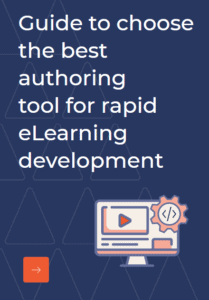The technological revolution has influenced every industrial sector. While some industries have always been highly technology-driven others have gradually been drawn in, and with changing times the reliance has only been growing. The banking and Financial Services Industry (BFSI) has been amongst the pioneers in technological adoption. As the executive summary of PwC’s report- Financial Services Technology 2020 and Beyond: Embracing disruption, rightly points out, “The financial services industry has seen drastic technology-led changes over the past few years. Many executives look to their IT departments to improve efficiency and facilitate game-changing innovation – while somehow also lowering costs and continuing to support legacy systems.”
A service industry that is heavily regulated by laws and norms, the BFSI sector often witnesses changes at global and national levels that influence the economy and regular functions too. From conversion rates to the constant talk around Brexit, changes often destabilize the banking services, influence customer satisfaction, and disrupt the operations too. To curb it and to be prepared for such situations the workforce needs training. However, as the BFSI industry has always been a harbinger in utilizing the latest training methodology it has already moved past the traditional classroom training to the more efficient eLearning.
Some of the aspects that have influenced this change are:
- Constant updates in regulations.
- It the necessary to keep employees to be well versed in financial regulations to stay compliant.
- The addition of new and advanced FinTech requires employees to learn and re-learn.
- Introduction of new products at a competitive speed.
- Reduction of training and assessment costs.
- Varied learning capabilities of the employees.
eLearning hence has often been used to impart compliance training, process training, software training, sales training, and soft-skills training too. However, with the growing automation and push for a more customer-centric approach in the BFSI industry, the training requirements are transforming too. According to the MIT Sloan Management Review and Deloitte Digital’s global study, “Bankers would need upskilling to work more effectively in a digital environment.” As the PwC report states, “Financial institutions are starting to realize they will need talent with very different skills by 2020. On the surface, this might mean finding more industrial engineers for robotics work, or retraining underwriters to do higher-value work once AI is used to automate certain existing functions. But the issue runs deeper than developing a different competency model.”
The report adds that changes would ideally involve, developing robust learning modules to enhance the skills of executives, IT – and non-IT staff. And the training requirement here should: Facilitate focused on-the-job training, mentoring, and peer coaching by:
- Implementing communities of interest and voice of customer initiatives to drive digital banking information sharing.
- Partner with skilled professionals, technological leaders, educational institutions, and pertinent professional associations to develop/deliver relevant training materials.
Considering all the facts listed above, a technology-driven eLearning revolution is what the BFSI sector needs to improve the training. This would include considering the change in demographics, the influence of tech-savviness, and the growing device dependency. Hence, calling for a more mobile, device-agnostic form of learning that can be accessed from anywhere and at any time. Mobile Learning, mobile LMS, microlearning, social learning, gamified solutions, and more the next-gen of BFSI training would certainly be to create a workforce that is highly skilled, customer-centric, and goal-oriented.
Looking for partners to create innovative learning solutions? Just leave a message and we shall get back to you at the earliest.



